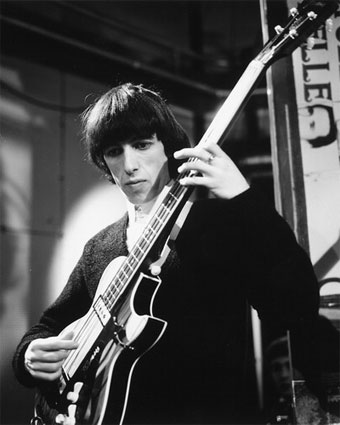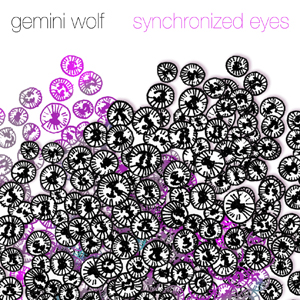In this morning’s wee hours, while driving back from a show in Hoboken, NJ, my close personal friend, Townsman andyr, posed an interesting question from the passenger’s seat: Did any musician beside Bill Wyman manage to have a bad Look during the 1960s? I think a number of you would agree with us that the decade offered a variety of sound rock fashions, covering all body types, hair textures, and ethnic and racial groups. Even hulking, pasty, butterscotch-toned Animals’ bassist Chas Chandler managed to develop a good Look in the ’60s. Wyman, however, never came close to finding a style that worked for him, or should I say us (he and his 10,000 jailbait road conquests managed to cope with that bad Look). (andyr went on to lament that Wyman carried his bad Look into the ’70s, like a sexually transmitted disease, eventually infecting his once super-cool bandmates, but that may be for another discussion.)
Continue reading »
After RTH’s recent global World Cup of Rock ‘n Roll lovefest, I did a little research about my own fair city and found out that there has been a war going on right here in San Francisco. Apparently, there has been SERIOUS disagreement about the city’s official song. It wasn’t enough that Jeanette MacDonald lustily suggested that you “open your golden gates” in the title song from the 1936 film San Francisco. Instead, Tony Bennet‘s later nostalgia about leaving his heart here was viewed as a serious contender for our official song. In this very political of cities, people went to fisticuffs to defend their choice of song, and at one point, a visiting Tony Bennet refused to leave his hotel room if the other San Francisco choice was played at a city event. According to a recent KALW discussion, the conflict was alleviated only when “San Francisco” was named the Official Song and “I Left My Heart In San Francisco” was named the Official Ballad.
Honestly, all that sturm und drang over THOSE two songs? There are so many more to choose from! Want to celebrate the Summer of Love? Then choose Scott McKenzie’s “If You’re Going to San Francisco.” Shades of political? Then how about “Tania,” by Camper Van Beethoven? Recollections of times spent here? “San Francisco,” by Kristin Hersh. Pining for a lost love? “Come Back From San Francisco,” by Magnetic Fields. Recognition of local landmarks? “Down on Mission Street,” by Lloyd Cole or “Grace Cathedral Park,” by Red House Painters. You could even bring attention to some of the less savory aspects of this city: “In San Francisco,” by Napalm and Eruption, or “Jumpers,” by Sleater-Kinney.
So, what’s your town or city’s Official Song? Or, what should it be? When I was living in Fairfield County, Connecticut, I would have nominated a version of “Money, That’s What I Want” or “Mother’s Little Helper” as being reflective of the local zeitgeist.
Some of you may be following my ongoing efforts to rebuild Team Hippie for the modern age. The time is right for long hair, free (or at least inexpensive) love, and dancing in the streets, but I’m looking for a few good Peace Warriors to lead us out of our current cultural doldrums. As I interview prospective Peace Warriors, one question must be answered: Do you care enough about peace and love to fight for it?
Continue reading »
Today Townsman k. steps to The Main Stage with the following Last Man Standing competition. Take it away, k.!
Those of us following the RTH World Cup of Rock ‘n Roll saw cdm‘s Australian squad play The Hoodoo Guru’s “Like Wow, Wipeout!” – complete with an all-feedback solo. Although it may be a bit of a cliche move these days, I generally like this musical device when it comes in at just the right time. To clarify, I am not interested in those nothing-but-feedback exercises by the likes of Sonic Youth or Neil Young’s Arc but something like the clip cdm used in the RTH World Cup, where the feedback takes the place of a standard guitar solo.
How many of these can Townspeople come up with and how many will it take until we are all good and sick of it?
In the spirit of fairness, I will kick this off with “Little Honda,” by Yo La Tengo, solo at 1:25:
It’s not only a box of 2009 Robert Pollard record releases that I’m behind on reviewing but more, much more once-new (in some cases) material that’s been submitted by independent musicians who are probably more professional in their musical pursuits than I am in any of my own pursuits as a rock journalist. In rapid-fire format, let’s see if I can’t catch up and give these artists their hard-earned and overdue due!
Gemini Wolf, Synchronized Eyes
Let’s kick this off with maybe the most egregious of my backlogged submissions for review. This CD was sent to Mr. Moderator about a year ago. He promptly turned it over to me, at which point I quickly delighted in spinning it and then more quickly lost the CD under a pile of empty pizza boxes and old sports pages. As my 9-year-old nephew said to me recently, “It’s good to lose things in your own house, isn’t it?” Yes, it is. Stay in one place long enough and you’re bound to find all that you’ve lost.
This same nephew, then 8 years old, was visiting when I first began listening to this CD. “It sounds like Irish music from outer space,” he said. Ah, from the mouths of babes! Continue reading »
Start playing at 3:15.
All this reminiscing about the godawful Sgt. Pepper’s Lonely Hearts Club Band movie got me thinking about the weirdest moment in an otherwise already super-weird decade in filmed musical entertainment: the 1970s. That moment has to be the grand finale of the Robert Stigwood-produced Sgt. Pepper’s movie. The movie is stupid enough, but — for the huge chorus finale — you can tell Stigwood put a call out to all his cronies, cohorts, and coke dealers to round up as many washed-up rock stars and Love Boat cast members as possible. Then he set them on a huge outdoor set, taught them a few rudimentary dance moves, and had them sing along to a bad cover of the Sgt. Pepper’s “Reprise.”
The cast he assembled is downright strange. But — rather than have me rattle them all off here — why don’t we rattle them all off together? It really is a fascinating, fun time-waster of an activity. I’m also hoping in my heart of hearts that you worthy Townsmen will also take a few moments to comment on the widely varying performances caught on screen.
I’ll start the proceedings by pointing out: at 4:26 — yes, that’s albino guitar wizard Johnny Winter, “dancing” rather haphazardly!
I look forward to your responses.
HVB
Last night I watched most of Taxi Driver for – what – the 25th time? [Make that 26th time – the cable station that was playing it played it again, back to back, so I had to watch it again to see what I’d missed earlier, and then I wanted to see the rest of the movie in sequence.] No director’s movies resonate with me more deeply and consistently than Martin Scorsese‘s classic films, from this 1976 breakthrough through Raging Bull (maybe my favorite move of all time), The King of Comedy and After Hours, and ending with Goodfellas. Since then he’s been a hollow run of the movie director’s equivalent of the Stones’ “best album since Exile.” Even Kundun was a letdown.
I blame Scorsese’s decline on his late-midlife crisis of chasing all the blonde cheerleader types who’d never looked his way when he was a young, awkward nobody, going through his own set of anxieties. It was one thing to work out his neuroses by having Travis go off the deep end in response to rejection by Cybill Shepherd’s character, but it’s something else to cast Cameron Diaz and ask her to speak in an Irish brogue for some 19th century Riverdance. But this is not exactly what I’m here to discuss.
I bet you’re all familiar with the concept of what I call the screeching halt movie, one of those movies that, when flipping channels, brings your remote control to a screeching halt and keeps you locked into the film from whatever point you entered until its conclusion. (You’re probably thinking of one of your screeching half faves as you read this – feel free to share it.) I’m not sure that the screeching half effect is as applicable in our music-listening practices, especially in this age of being tapped into our personal iTunes playlists and other tailored digital programs that have allowed us to fulfill David Bowie’s dream of being the DJ. However, when we actually spent more time in our cars, slaves to the limited options of “terrestrial radio,” we may have been more familiar with the notion of coming to a screeching halt while flipping through the radio dial. (I suspect most of our readers are old enough to have actually turned a radio dial.) Do we still think of songs in this screeching-halt sense, where we drop everything and make sure to listen closely until the song concludes?




